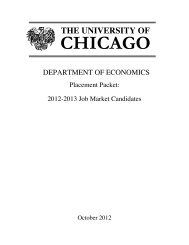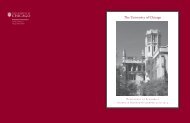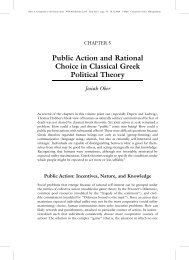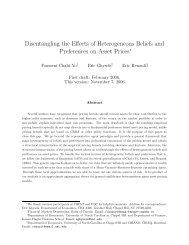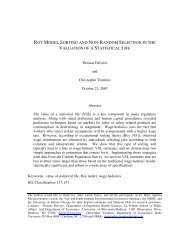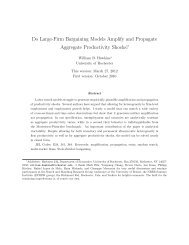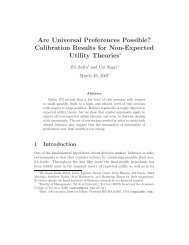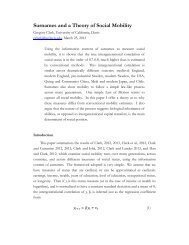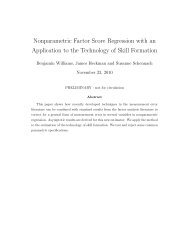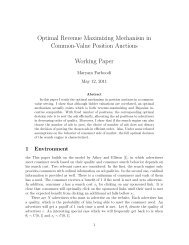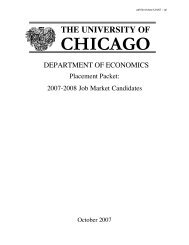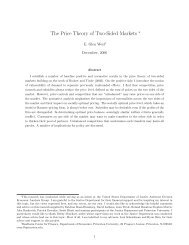CHICAGO - University of Chicago Department of Economics
CHICAGO - University of Chicago Department of Economics
CHICAGO - University of Chicago Department of Economics
You also want an ePaper? Increase the reach of your titles
YUMPU automatically turns print PDFs into web optimized ePapers that Google loves.
GUSTAF BRUZE<br />
5330 S. Blackstone Avenue gustaf@uchicago.edu<br />
<strong>Chicago</strong>, IL 60615 Home phone: (773) 752 2578<br />
NATIONALITY<br />
Swedish<br />
EDUCATION Ph.D. <strong>Economics</strong> <strong>University</strong> <strong>of</strong> <strong>Chicago</strong> Expected June 2009<br />
B. Sc. Mathematics Stockholm <strong>University</strong> 2001<br />
M. Sc. <strong>Economics</strong> Stockholm School <strong>of</strong> <strong>Economics</strong> 2000<br />
FIELDS Primary: Labor / Human Capital<br />
Secondary: Growth, Development<br />
JOB MARKET<br />
PAPER<br />
“Schooling, Marriage, and Male and Female Consumption”<br />
A marriage matching model is estimated to quantify the share <strong>of</strong> returns to<br />
education that is realized through marriage. In the model, more educated agents<br />
earn higher wages in the labor market, and are more productive in housework.<br />
Men and women who marry benefit from the presence <strong>of</strong> household public goods,<br />
complementarities in household production, and the division <strong>of</strong> labor between<br />
spouses. The predictions <strong>of</strong> the model are matched with 1980 census data on<br />
sorting in marriage, and data on the allocation <strong>of</strong> time from a time use study.<br />
Counterfactual analysis for men and women, suggests that better marital<br />
outcomes generate 65 percent <strong>of</strong> the return to education for women around middle<br />
age and 20 percent <strong>of</strong> the corresponding return for men.<br />
OTHER PAPERS “What Causes Positive Sorting on Education in Marriage? Evidence from a Social<br />
Experiment”<br />
TEACHING TA, Undergraduate Macroeconomics Chad Syverson 2003<br />
EXPERIENCE TA, Undergraduate Microeconomics Omar Al-Ubaydli 2004<br />
TA, Undergraduate Microeconomics Vicor Lima 2006<br />
TA, American Economic History David Galenson 2004-07<br />
REFERENCES Casey Mulligan (joint chairman) (773) 702 9017 c-mulligan@uchicago.edu<br />
Ali Hortaçsu (joint chairman) (773) 702 5841 hortacsu@uchicago.edu<br />
Jeremy Fox<br />
(773) 702 4862 fox@uchicago.edu



